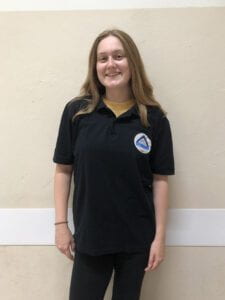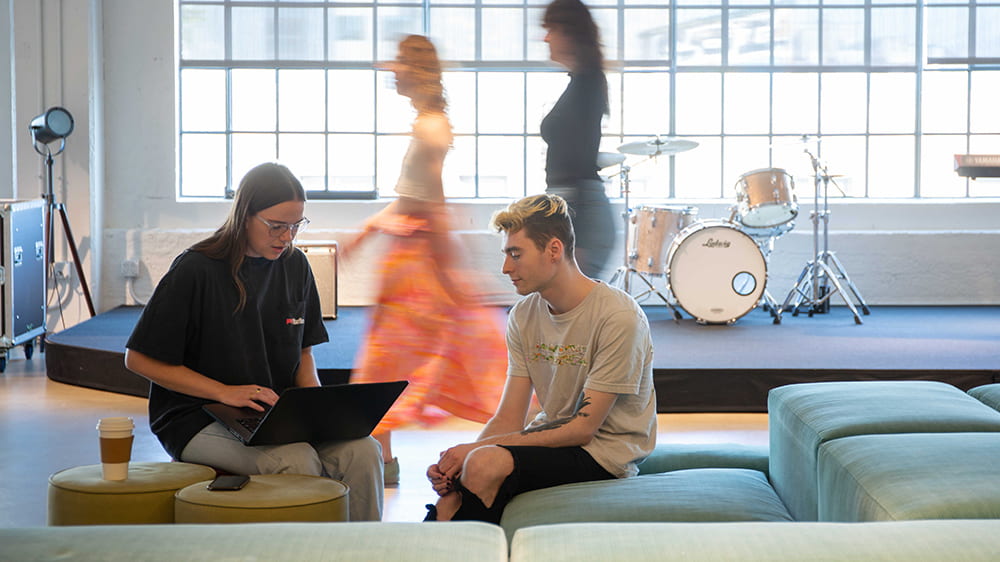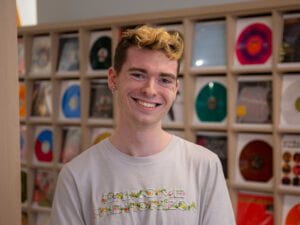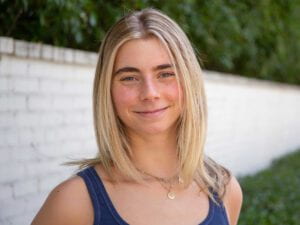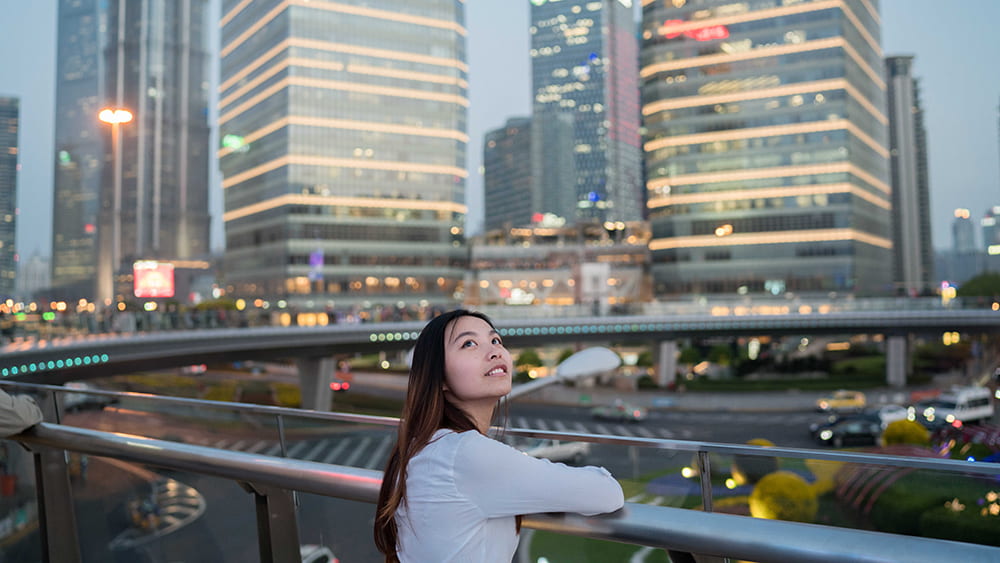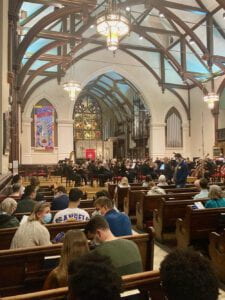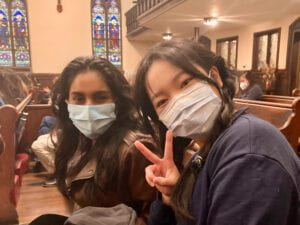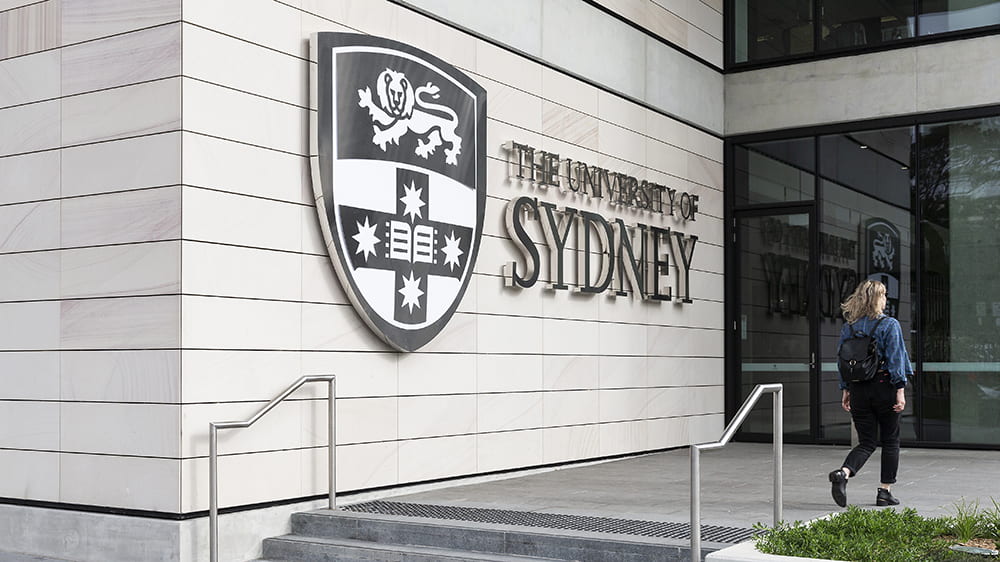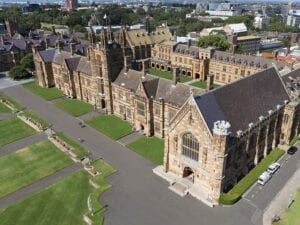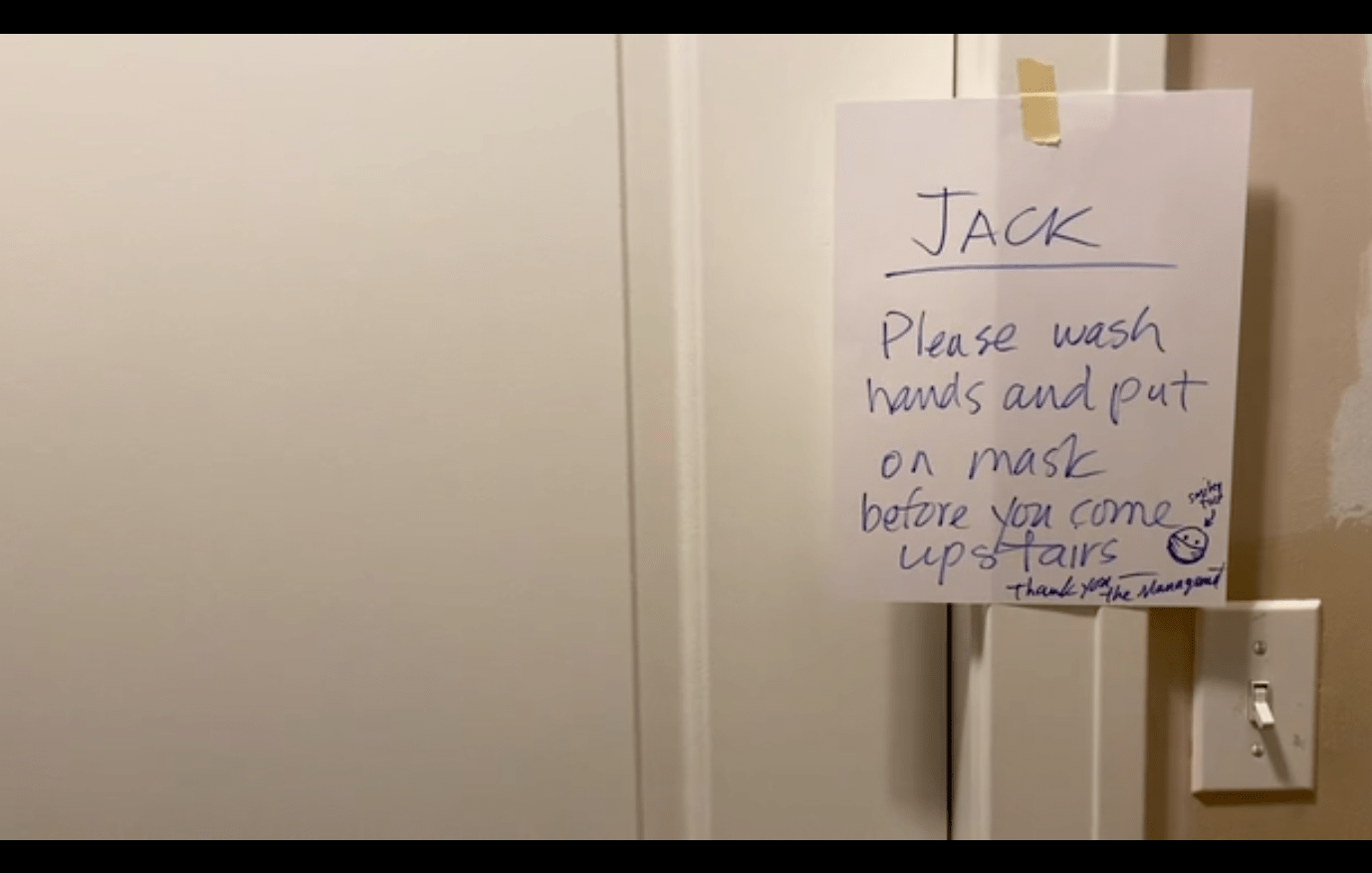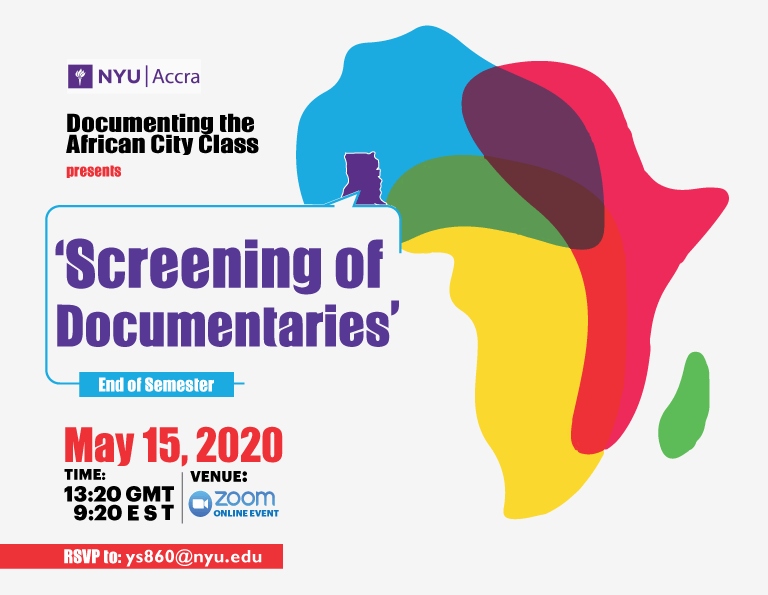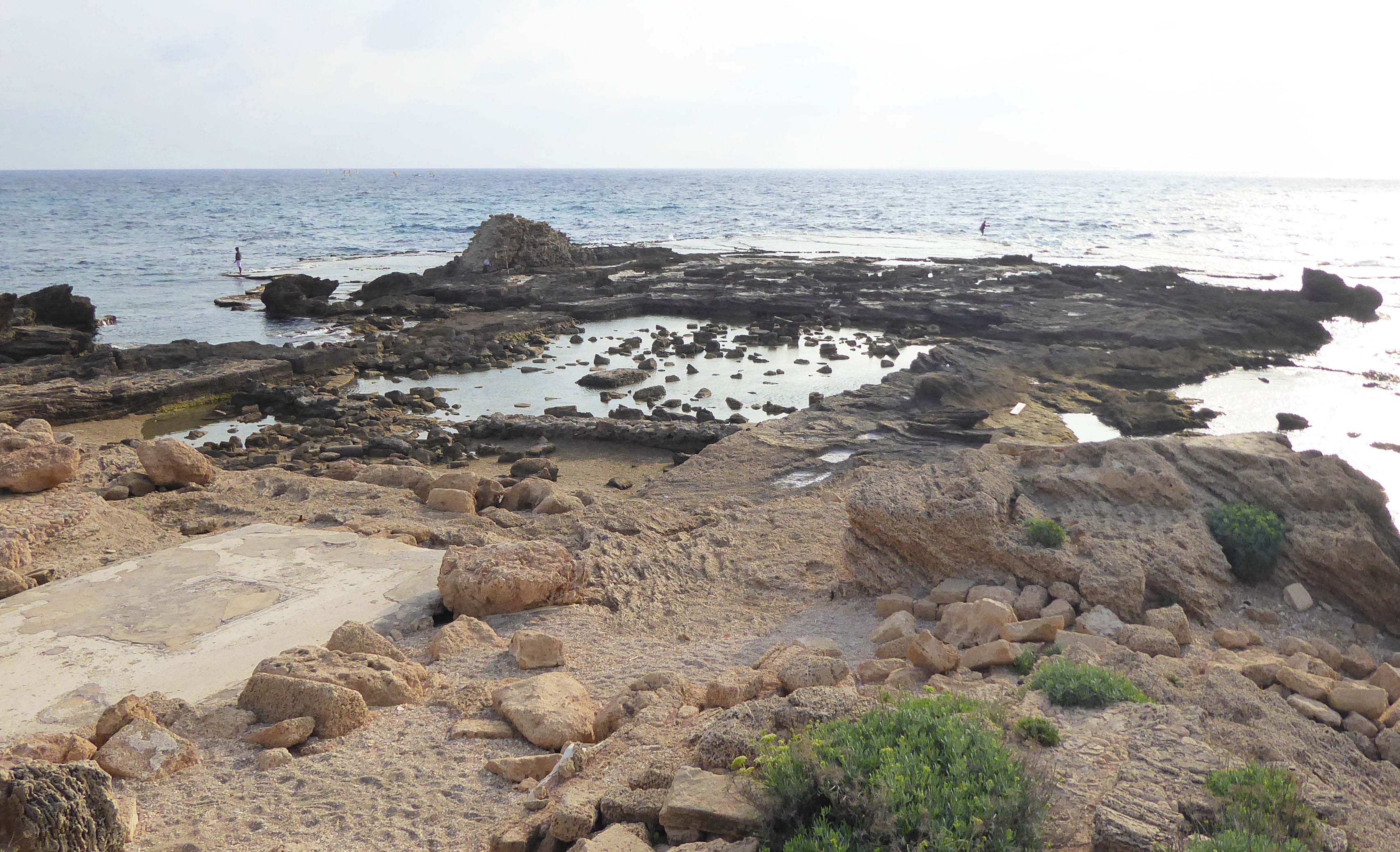Through internships, volunteer opportunities, and class projects, NYU study away students can make a positive impact on the children in their local communities while also gaining valuable, real-world experience they can apply to their future careers.
While studying at NYU Prague last spring, Joey Duke, a junior majoring in Music Education at the NYU Steinhardt School of Culture, Education, and Human Development, found there is more to his field of study than he could have imagined. Through the class Foundations of Music Education led by Professor Klára Boudalová, he had the opportunity to work with the Prague Symphony Orchestra to help make classical music accessible to children in the Czech Republic.
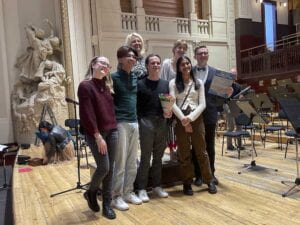
Concert planners and participants pose for a photo onstage at Smetana Hall after the orchestra performance. Pictured from left to right are: Jaime Patterson, Jair Gonzales, director Klara Boudalova, Joey Duke, actress Veronika Kubarova, Jahnvi Seshadri, and conductor Jan Kucera.
“We worked on the Orchestr na dotek, which means ‘the orchestra to listen,’” Joey says. After a semester of learning from the orchestra, the class’ final project was to organize an orchestra completely on their own. “It’s their program created just for young audiences, and it was a game changer for me. It showed me there’s a lot more you can do with music education.”
Joey and his classmates “took a part in everything” when it came to creating the orchestra. They chose composers, selected and cut the music, wrote a storyline, and worked with the musicians and performers to ensure the performance went off without a hitch.
“We knew we would be these kids’ first impressions of the composers, and we wanted to make sure we selected the right pieces and cuts,” explains Joey. Their orchestra focused on the works of Claude Debussy and Maurice Ravel, which they intertwined with a story about pirates. “The music really couldn’t be more than three minutes at a time, so we had to select the most important parts. That took a lot of score reading and musical knowledge. Then for the story, Debussy features a lot of ocean music and Ravel features a lot of Spanish music, so we were like, ‘We’ve got it! We’re getting on a ship, we’re venturing across the sea, we’re going to islands.’ It was this big, fantastical process, and once we got past the blank canvas, the possibilities were endless.”
Similarly, at NYU Florence, Anika Istok, a junior majoring in Psychology at the College of Arts and Science and minoring in both Italian Studies and Child and Adolescent Mental Health Studies (CAMS), had the chance to connect with children through music.
“Music is so important for kids,” says Anika who spent the fall of 2022 volunteering with NPM Bambini in Movimento, an organization that provides support, therapy, and inclusive recreational activities for children, adolescents, and their families to help improve their health and wellness. “It’s an important way for kids to express themselves, especially if they’re nonverbal, shy, or don’t initiate interactions. It’s amazing because, through something simple like playing our community drum together, they were able to bond in a way that, even with words, you can’t accomplish.”
Volunteering with NPM Bambini in Movimento was fulfilling for Anika on multiple levels. It not only advanced her work in psychology and CAMS but also helped her become fluent in Italian. She noted volunteering as part of the culture at NYU Florence, so she knew she would get involved somewhere. Still, it was important for her to find an organization where she could really make an impact, and at NPM Bambini in Movimento, she was able to do just that.
“We weren’t necessarily teaching music; rather, we were experiencing music together,” Anika adds. Anika helped teach two after-school classes, one for children between 2 and 5 and one for children between 6 and 8 years old. “A lot of the kids we worked with had either a disability or some sort of special need, and a lot of them were too young to be in school full time or had some trouble in school. Connecting with them outside of their normal educational environment was really important.”
Both Joey and Anika returned to New York City after their semesters away with newfound knowledge and appreciation for their selected fields of study. “This opportunity showed me that I could not only aspire to do something like this but do it. And then we watched it happen,” says Joey. “At the end of the day, music is who we are as a people. It carries all of our cultural meaning, it carries a message, and for kids to understand the music from where they are is for them to participate in their communities. For me, I realized there’s so much more we can do. That semester really opened my eyes to the impact we can make through music.”
Written by Kelly McHugh-Stewart
